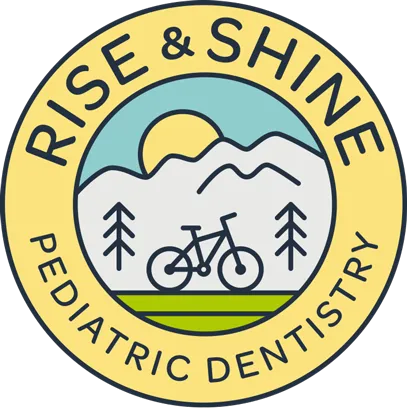 How to ease teething discomfort
How to ease teething discomfort
Baby’s first tooth is a cause for celebration, but the process of the tooth coming in can be uncomfortable. Here at Rise and Shine, we love sharing our top tips for a teething baby with our clients. If your baby is drooling more than usual, putting their hands or toys in their mouth, or seems fussy, these may be signs that your baby is teething. While most babies are around 6 months old when their first tooth erupts, some children are much younger or older than this when teeth begin to appear in the mouth. Dr. Villasenor and the team at Rise and Shine Pediatric Dentistry are here to help you learn how to keep your baby comfortable through teething!
Top Tips for a Teething Baby
If your baby is teething, it likely feels good to chew on soft teething toys that are easy to clean. Make sure to help your baby use their toothbrush in the area when the new tooth is erupting to keep the gums healthy and clean. It’s okay for your baby to chew on their toothbrush, as long as they are sitting down and not walking around. The American Academy of Pediatric Dentistry cautions against using topical anesthetics or teething gels, since these pose a risk for toxicity in infants since it is unknown exactly how much your baby swallows. If teething discomfort wakes your baby at night, it is okay to give their weight-based dose of Children’s acetaminophen, if your child’s pediatrician has approved this medication for them.
When to see your Pediatric Dentist
As soon as your baby’s tooth is visible in their mouth, start brushing it every evening! Keeping new teeth clean is the best way to make sure that surrounding gum tissue stays healthy and comfortable. The American Academy of Pediatrics recommends that babies see a dentist by age one, or withing six months of the first tooth erupting, for optimal oral health. Call our office at 303-758-0223 to schedule your visit with Dr. Villasenor today!

 How to ease teething discomfort
How to ease teething discomfort